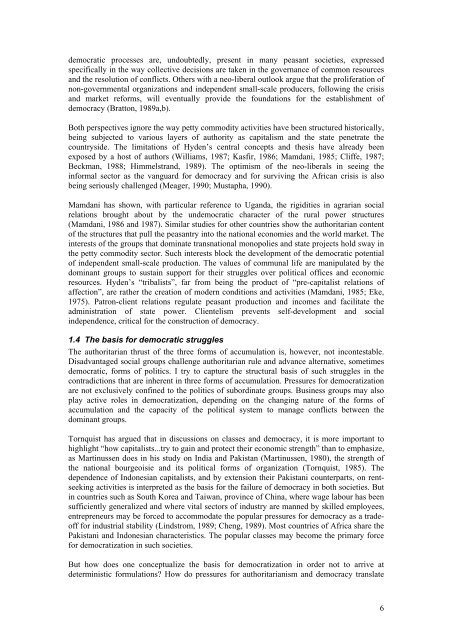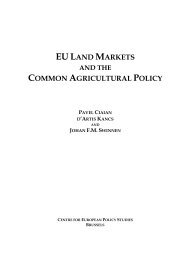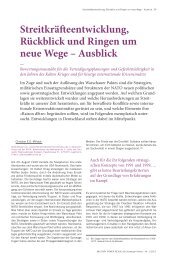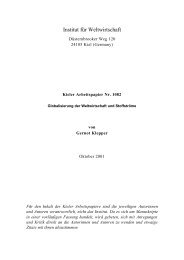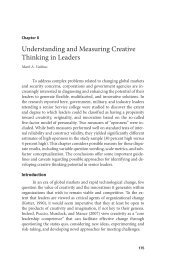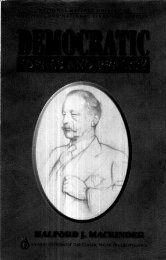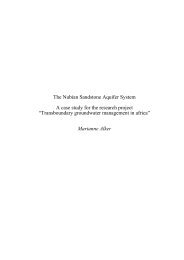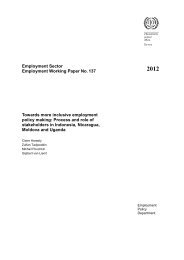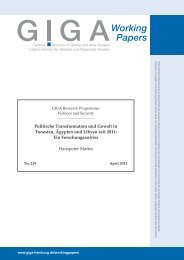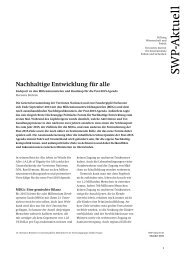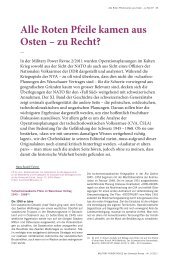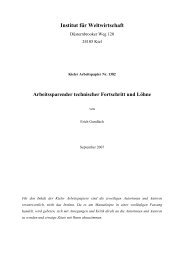Authoritarian Rule and Democracy in Africa: A Theoretical Discourse
Authoritarian Rule and Democracy in Africa: A Theoretical Discourse
Authoritarian Rule and Democracy in Africa: A Theoretical Discourse
You also want an ePaper? Increase the reach of your titles
YUMPU automatically turns print PDFs into web optimized ePapers that Google loves.
democratic processes are, undoubtedly, present <strong>in</strong> many peasant societies, expressedspecifically <strong>in</strong> the way collective decisions are taken <strong>in</strong> the governance of common resources<strong>and</strong> the resolution of conflicts. Others with a neo-liberal outlook argue that the proliferation ofnon-governmental organizations <strong>and</strong> <strong>in</strong>dependent small-scale producers, follow<strong>in</strong>g the crisis<strong>and</strong> market reforms, will eventually provide the foundations for the establishment ofdemocracy (Bratton, 1989a,b).Both perspectives ignore the way petty commodity activities have been structured historically,be<strong>in</strong>g subjected to various layers of authority as capitalism <strong>and</strong> the state penetrate thecountryside. The limitations of Hyden’s central concepts <strong>and</strong> thesis have already beenexposed by a host of authors (Williams, 1987; Kasfir, 1986; Mamdani, 1985; Cliffe, 1987;Beckman, 1988; Himmelstr<strong>and</strong>, 1989). The optimism of the neo-liberals <strong>in</strong> see<strong>in</strong>g the<strong>in</strong>formal sector as the vanguard for democracy <strong>and</strong> for surviv<strong>in</strong>g the <strong>Africa</strong>n crisis is alsobe<strong>in</strong>g seriously challenged (Meager, 1990; Mustapha, 1990).Mamdani has shown, with particular reference to Ug<strong>and</strong>a, the rigidities <strong>in</strong> agrarian socialrelations brought about by the undemocratic character of the rural power structures(Mamdani, 1986 <strong>and</strong> 1987). Similar studies for other countries show the authoritarian contentof the structures that pull the peasantry <strong>in</strong>to the national economies <strong>and</strong> the world market. The<strong>in</strong>terests of the groups that dom<strong>in</strong>ate transnational monopolies <strong>and</strong> state projects hold sway <strong>in</strong>the petty commodity sector. Such <strong>in</strong>terests block the development of the democratic potentialof <strong>in</strong>dependent small-scale production. The values of communal life are manipulated by thedom<strong>in</strong>ant groups to susta<strong>in</strong> support for their struggles over political offices <strong>and</strong> economicresources. Hyden’s “tribalists”, far from be<strong>in</strong>g the product of “pre-capitalist relations ofaffection”, are rather the creation of modern conditions <strong>and</strong> activities (Mamdani, 1985; Eke,1975). Patron-client relations regulate peasant production <strong>and</strong> <strong>in</strong>comes <strong>and</strong> facilitate theadm<strong>in</strong>istration of state power. Clientelism prevents self-development <strong>and</strong> social<strong>in</strong>dependence, critical for the construction of democracy.1.4 The basis for democratic strugglesThe authoritarian thrust of the three forms of accumulation is, however, not <strong>in</strong>contestable.Disadvantaged social groups challenge authoritarian rule <strong>and</strong> advance alternative, sometimesdemocratic, forms of politics. I try to capture the structural basis of such struggles <strong>in</strong> thecontradictions that are <strong>in</strong>herent <strong>in</strong> three forms of accumulation. Pressures for democratizationare not exclusively conf<strong>in</strong>ed to the politics of subord<strong>in</strong>ate groups. Bus<strong>in</strong>ess groups may alsoplay active roles <strong>in</strong> democratization, depend<strong>in</strong>g on the chang<strong>in</strong>g nature of the forms ofaccumulation <strong>and</strong> the capacity of the political system to manage conflicts between thedom<strong>in</strong>ant groups.Tornquist has argued that <strong>in</strong> discussions on classes <strong>and</strong> democracy, it is more important tohighlight “how capitalists...try to ga<strong>in</strong> <strong>and</strong> protect their economic strength” than to emphasize,as Mart<strong>in</strong>ussen does <strong>in</strong> his study on India <strong>and</strong> Pakistan (Mart<strong>in</strong>ussen, 1980), the strength ofthe national bourgeoisie <strong>and</strong> its political forms of organization (Tornquist, 1985). Thedependence of Indonesian capitalists, <strong>and</strong> by extension their Pakistani counterparts, on rentseek<strong>in</strong>gactivities is <strong>in</strong>terpreted as the basis for the failure of democracy <strong>in</strong> both societies. But<strong>in</strong> countries such as South Korea <strong>and</strong> Taiwan, prov<strong>in</strong>ce of Ch<strong>in</strong>a, where wage labour has beensufficiently generalized <strong>and</strong> where vital sectors of <strong>in</strong>dustry are manned by skilled employees,entrepreneurs may be forced to accommodate the popular pressures for democracy as a tradeofffor <strong>in</strong>dustrial stability (L<strong>in</strong>dstrom, 1989; Cheng, 1989). Most countries of <strong>Africa</strong> share thePakistani <strong>and</strong> Indonesian characteristics. The popular classes may become the primary forcefor democratization <strong>in</strong> such societies.But how does one conceptualize the basis for democratization <strong>in</strong> order not to arrive atdeterm<strong>in</strong>istic formulations? How do pressures for authoritarianism <strong>and</strong> democracy translate6


